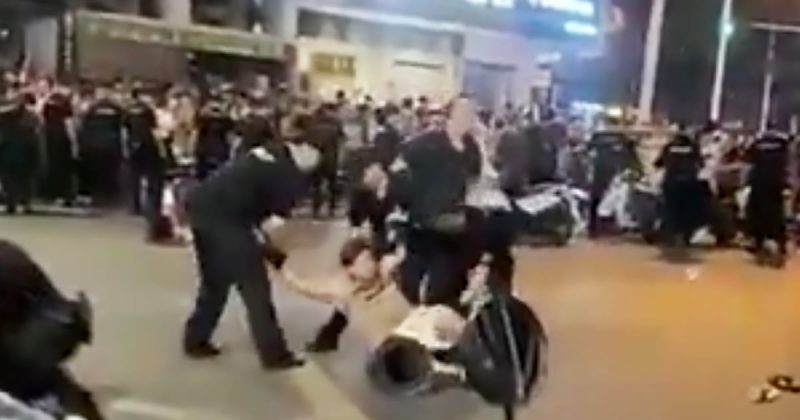
Videos circulating on Chinese social media ignited a firestorm of public anger this week. The footage depicted a brutal bullying incident involving a 14-year-old girl in Jiangyou, Sichuan province, sparking unusual protests and clashes with police.
The attacks, which included both verbal and physical abuse, were captured on video and quickly went viral. This led to widespread outrage, with many questioning the leniency of the initial police response. Local residents, fueled by some false reports of official connections to the perpetrators’ families, took to the streets, confronting authorities they believed had failed to deliver justice.
One particularly striking video, verified by NBC News, showed a man behind a barricade voicing the anxieties of many: “Your children will meet children of officials who are more senior than you. What if they beat your children?” This sentiment underscores the deep-seated mistrust and frustration felt by many citizens regarding the perceived impunity of those with connections to power.
Further verified videos, many swiftly removed by Chinese censors, documented large crowds gathering in Jiangyou, at times singing the national anthem as police presence intensified. Physical confrontations between protesters and law enforcement resulted in several arrests. A spokesperson for the Sichuan Public Security Department declined to comment beyond previous statements.
According to official police reports, the incident occurred on July 22nd. Three teenage girls, aged 13, 14, and 15, assaulted the 14-year-old victim, resulting in minor injuries. While two of the attackers received public security penalties and were sent to a special school, the handling of the case has been met with significant criticism. The lack of clarity surrounding the penalties and the disparate treatment of the three girls further fueled public anger.
Cyber police in Mianyang, which administers Jiangyou, clarified that the families of the attackers held no official positions, refuting some of the circulating rumors. They also reported that those responsible for spreading false information had been punished. Nevertheless, the incident continues to spark heated debate on Chinese social media, with many calling for stricter penalties to deter future bullying.
This isn’t an isolated incident. China has seen a rise in high-profile bullying cases recently, highlighting a growing societal concern. In January, protests erupted in Shaanxi province following the death of a teenage student, and last December, a court in Hebei sentenced two teenagers to life imprisonment and 12 years respectively for the murder of a classmate. These events underscore the urgency of addressing the issue of bullying and improving the justice system’s response.
The Chinese government acknowledges the problem. A recent survey by the China Youth & Children Research Center revealed that over half of Chinese students have experienced some form of school bullying. In June, the top legislature passed an amendment to allow detention of minors aged 14 to 16 for serious offenses, signaling a potential shift in how such cases will be handled in the future. The protests in Jiangyou, however, serve as a stark reminder of the depth of public frustration and the need for meaningful and transparent action to address the pervasive issue of school bullying in China.










